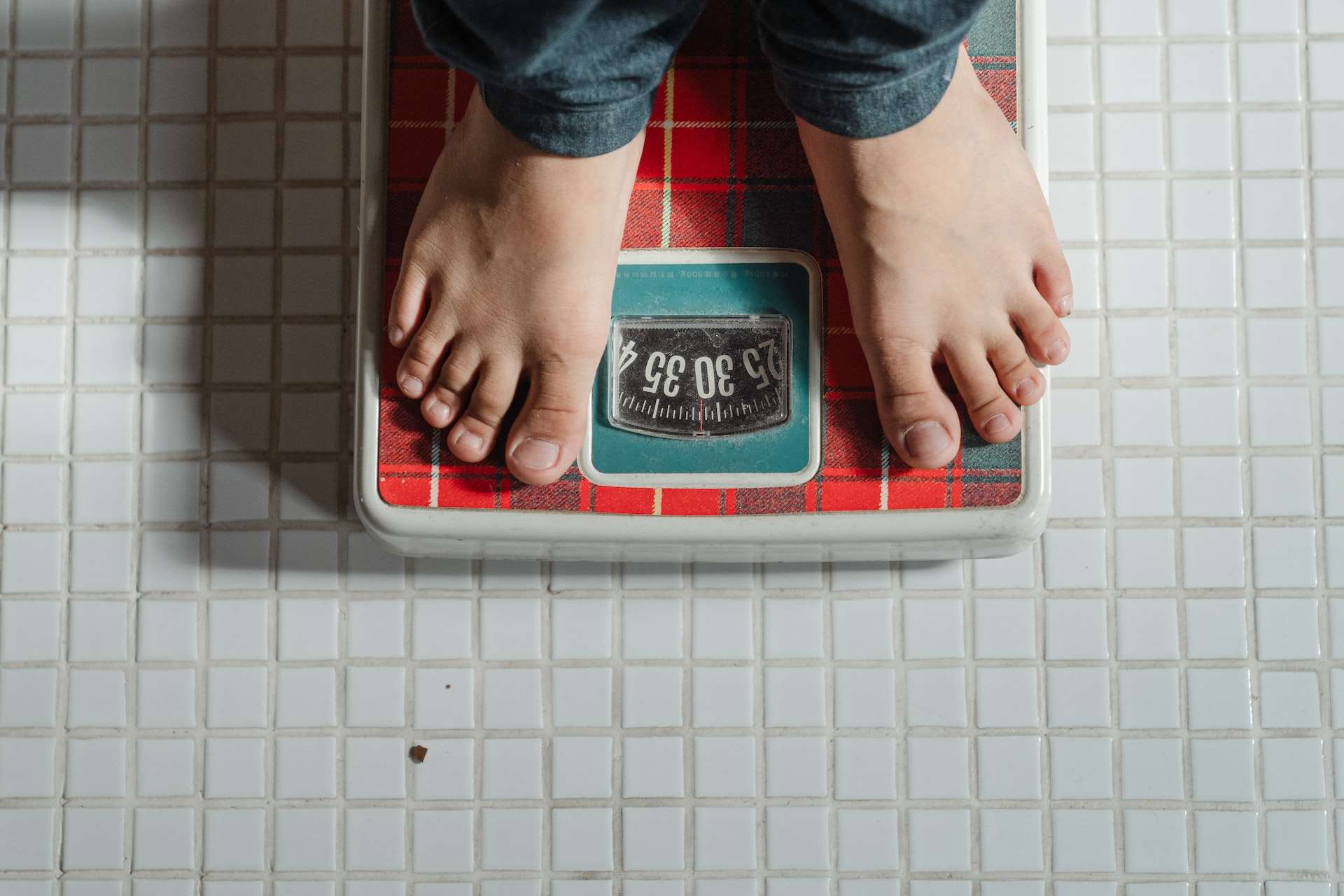|
Do you want to feel, look, and improve your overall health? Then a low-carb diet may be the answer. A low-carb diet is proven to transform your body and mind, and it’s easier than you think! In this article, I’ll explain how a low-carb diet can help you reach your goals. If you’re anything like me, feeling exhausted, bloated and sluggish is something you’d rather avoid. That’s why I decided to try a low-carb diet – and I was amazed at the results. After just one week of making healthier food choices, cutting out carbs, and adding more protein, my energy levels had soared, and my bloating had disappeared. One main benefit of a low-carb diet is that it helps reduce inflammation, leading to improved mental clarity. This means that you will feel physically and mentally healthier, leading to greater productivity levels throughout your daily life. With all these fantastic benefits in mind, let’s explore further how a low-carb diet can help transform your body and mind.
Table of Contents
show
The Science Behind Low-Carb DietsA low-carb diet can be just what you need to achieve your health and weight loss goals. But before you jump in head first, it’s essential to understand how this type of diet works to make the most of its benefits. The science behind a low-carb diet is simple: reducing carbohydrate intake forces your body to use stored fat as fuel instead. This causes weight loss, but other factors are also at play. For instance, high-protein and low-carb diets enable your body to regulate insulin more effectively, which can help with weight management and reduce cravings for unhealthy foods. Limiting carbs also helps reduce inflammation, improving energy levels and overall mood. All these benefits create a powerful package that can impact your life. Through careful planning and adherence to the proper guidelines, you’ll be able to reap the rewards of a low-carb diet for weight loss or muscle gain – whatever your goal may be. With the right approach, you’ll see actual results in no time. The Health Benefits Of A Low Carb DietThe health benefits of a low-carb diet can be transformational – both physically and mentally. Symbolically, it’s like unlocking the door to a healthier version of yourself. By following the proper low-carb diet for weight loss plan, you can start seeing fundamental changes that will impact your life. Low-carb diets are often high in protein, which helps build muscle while losing fat. This means you lose weight and get a toned body at the same time.
Furthermore, due to their lower levels of carbohydrates, these diets help reduce hunger and cravings between meals. The best low-carb diet for weight loss is one that’s balanced and doesn’t restrict food groups too much – such as the high protein and low carb diet for weight loss which has been popular in Australia for some time now. Alongside this, recent studies have also shown that low-carb diets are more effective than other types concerning fat loss and bodybuilding. This is because they help reduce dangerous visceral fat accumulating around internal organs and increase the risk of heart disease and diabetes. Additionally, many foods on a list of low-carb foods for weight loss are tasty and nutritious – so you don’t have to compromise on nutrition or flavor while switching up your diet plan! Plus, with multiple success stories from people who have gone through a low-carb diet weight loss before and after the journey, you can trust that this diet works! Overall, if done correctly using the right combination of proteins, fats, and carbs, a low-carb lifestyle could help you achieve your desired results without worrying about being hungry or deprived all the time! So why not give it a try? How Low-Carb Diets Affect Weight LossA low-carb diet could be the answer if you want to transform your body and mind. It’s no secret that reducing your carbohydrates can help with weight loss, but you may need to learn just how much of an impact it can have on your overall health. From the first week of a low-carb diet for weight loss, you’ll experience changes in your energy levels and physical appearance. Eating fewer carbs often leads to an initial reduction in water weight, meaning you’ll start seeing results quickly. But the benefits continue beyond there. Studies have shown that keeping carbs low can lead to further drops in body fat percentage and waist circumference over time – potentially leading to improved health markers such as blood pressure, cholesterol, and triglyceride levels. The key is finding out how much carbohydrate reduction suits each individual. With so many diets available – from keto to the Mediterranean – it’s essential to research which type of low-carb diet might be most suitable for your goals and lifestyle.
Depending on the chosen approach, this could involve counting macros or calories, utilizing strict meal plans or food lists, or simply focusing on fresh produce and healthy proteins. Whatever route you take, committing yourself to a healthy lifestyle will help maximize the long-term benefits of a low-carb diet for weight loss – giving you more energy and helping you feel better overall! How A Low-Carb Diet Can Improve Cardiovascular HealthWhen transforming your body and mind, no diet is more potent than a low-carb diet! It can be the difference between feeling sluggish and having the energy to take on your day with optimism. But its benefits don’t stop there – a low-carb diet can also help improve cardiovascular health. Following a low-carb diet for weight loss can reduce your risk of high cholesterol, hypertension, and heart disease. Low-carb foods for weight loss, like fish, lean meats, eggs, and nuts, are packed with healthy fats that can reduce inflammation and help lower blood pressure. Plus, a low-carb diet plan for weight loss free of added sugars helps regulate insulin levels and keep your metabolism running smoothly. But there are even more ways to get the most out of your low-carb diet for fat loss and muscle gain. By incorporating high-protein foods into your low-carb diet for weight loss rather than keto, you can ensure an adequate intake of vitamins and minerals while remaining in ketosis. This is critical to maximizing your best low-carb diet for quick weight loss results. And remember to keep hydrated – drinking enough water daily is essential to any successful weight management program! How A Low-Carb Diet Can Improve Mental HealthAt first, it may seem like a low-carb diet is only suitable for physical health; after all, it is most often associated with weight loss. But what if I told you that the benefits of a low-carb diet extend far beyond the physical body? That’s right – this life-altering diet can also transform your mental health and well-being. The wonders of a low-carb diet are truly remarkable: 1) Weight loss success stories are abundant as individuals finally reach their goals after years of struggling with traditional diets. 2) You can customize a low-carb diet for weight loss to suit any lifestyle, whether you prefer to count carbs or focus on whole foods. 3) Walking for weight loss on a low-carb diet helps individuals explore new challenges and become more confident in their abilities. Not only does this dietary approach promote sustainable weight loss, but it has also been linked to positive changes in mental health. Research has shown that eating fewer carbs and more protein can reduce feelings of stress and anxiety, help combat depression and improve cognitive performance. Plus, when combined with intermittent fasting and other healthy habits, the benefits of a low-carb diet increase exponentially! This powerful combination of nutrition and lifestyle changes has significantly impacted those with chronic diseases such as diabetes or heart disease. By following a high protein, low carb diet good for weight loss, individuals can take control of their health while enjoying delicious meals like high protein low carb diet recipes for weight loss.
The result? Better management of chronic conditions thanks to improved mental clarity and energy levels! The Role Of Low Carb Diets In Managing Chronic DiseasesLow-carb diets offer a robust solution when it comes to managing chronic diseases. Many choose these diets to lose weight without feeling deprived or hitting a plateau. Developing a low-carb diet plan for weight loss can be as simple as cutting back on starches and sugars while increasing the number of healthy proteins and fats. Depending on individual health goals, the carbs eaten in a day can range from 20-50 grams. Eating this way can help you reach your weight loss goals faster, with some studies showing that those on a low-carb diet lose up to 2-3 times more weight than those on a typical low-fat diet over one month. The benefits continue! Not only do low-carb diets help with weight loss, but they also promote improved physical performance. Studies have shown that eating fewer carbohydrates can help increase stamina and reduce fatigue due to quicker energy production from fat sources. Undoubtedly, many athletes are turning to low-carb diets for improved performance! Switching to a low-carb diet doesn’t have to be intimidating; plenty of online resources and delicious recipes make it easy for beginners. With careful planning and attention to nutrition labels, you may soon enjoy the benefits of eating fewer carbs. Low Carb Diets And Improved Physical PerformanceHave you ever wondered if a low-carb diet could help you improve your physical performance? You may have heard some success stories and want to learn more. If so, you’re in the right place! Research has shown that following a low-carb diet can help athletes and other active people reach new heights of performance. A low-carb diet helps to reduce weight, increase energy levels, and promote better recovery from workouts. It also aids in maintaining muscle mass—all critical components for improved physical performance. Low-carb diets can also benefit those looking to get fit and stay healthy. Eating fewer carbs can improve blood sugar control, which is essential for long-term health.
Low-carb diets are also linked to lower cholesterol levels and a reduced risk of heart disease. Plus, they can help athletes maintain an ideal body weight while still getting the energy they need for their workouts. This type of diet has its challenges, though. Taking on a low-carb diet means cutting out many high-carb foods that may be comforting or familiar—which can be difficult initially. It’s vital to ensure you’re still getting enough essential nutrients like fiber, vitamins, minerals, and antioxidants to stay healthy while following a low-carb lifestyle. Many resources are available online, such as low-carb diet weight loss forums, no weight loss first-week advice, fast loss tips, and more to help make transitioning easier. Finding what works best for you is vital to getting the most from your low-carb lifestyle! The Pros And Cons Of Low-Carb DietsAre you looking to start a weight loss journey and consider a low-carb diet? You might have heard of the myriad benefits of it – improved physical performance, weight loss, better heart health, and more. But what are the pros and cons of this lifestyle approach? Let’s explore this further. Intermittent fasting and a low-carb diet for weight loss are increasingly popular options for those who want to achieve their weight loss goals. As with any lifestyle change, there are advantages and disadvantages to consider before taking the plunge. On the one hand, it can be an effective way to lose fat since carbohydrates are restricted. This also helps curb sugar cravings as healthier alternatives like lean proteins, healthy fats, and vegetables replace carbs. On the other hand, if not done correctly, a low-carb diet can lead to nutrient deficiencies, as some essential vitamins and minerals come from carbohydrate sources such as fruits and grains. Furthermore, it isn’t sustainable in the long run due to its restrictive nature, meaning people may regain all the lost weight when they return to their regular eating habits. It is essential to understand how much carbs you should cut out for optimal results when following a low-carb diet for weight loss – typically between 20-50 grams per day, depending on your needs. Also, knowing what a perfect low-carb diet for weight loss is – think high-quality protein sources such as meats, fish, nuts, and eggs; healthy fats like avocado oil or olive oil; vegetables; dairy products; legumes; certain fruits; and whole grains – is critical in ensuring your body gets all the essential nutrients it needs while following this regime. Now that we’ve explored both sides of the coin regarding a low-carb diet for weight loss let’s move on to common mistakes made by those starting this journey and how best to avoid them… Common Low-Carb Diet Mistakes And How To Avoid ThemFollowing a low-carb diet for weight loss can be tricky. There are many advantages to this type of diet, including improved mental clarity and energy levels, but some common mistakes can quickly derail your progress. Knowing what those mistakes are and how to avoid them is critical to reaping the rewards of a low-carb lifestyle. When people hear ‘low carb,’ they often think ‘no carb.’ Is a no-carb diet good for weight loss? No, it’s not. Depriving your body of carbohydrates entirely isn’t sustainable or healthy. A better approach is to determine how many carbs you need daily and stick to that number. Depending on your goals, you should slightly reduce your carbohydrate intake or stick with a moderately low-carb diet for weight loss. It’s also important to focus on eating suitable types of carbohydrates. For example, filling up on high protein, low carb foods like nuts and seeds instead of processed junk food can help you stay fuller and reduce cravings for unhealthy snacks throughout the day. Additionally, incorporating nutrient-dense vegetables into your meals will ensure you get all the necessary vitamins and minerals to reach your goals without sacrificing flavor.
Learning which foods work best for your body is essential to successfully follow a low-carb diet for weight loss without feeling deprived or overwhelmed by rules and restrictions. Try experimenting with different meals and recipes until you devise a plan that works best for you; this way, sticking with a low-carb lifestyle will feel like such an easy task. With the right balance of macronutrients in each meal and plenty of nutrient-dense vegetables, you’ll be well on your way toward reaching any health goals you have set for yourself. How To Start And Stick To A Low-Carb DietStarting a low-carb diet can be daunting, but with the right mindset and attitude, it can be an enriching experience. To prove this point, take the example of Mark – a man struggling to lose weight for years. After switching to a low-carb diet, he managed to drop 20 pounds in just three months and felt more energized than ever before. If you’re ready to follow in Mark’s footsteps and start your low-carb journey, here are some tips on how to make it happen:
As well as making this list of forbidden items, create another one with all the foods that are part of your desired diet, like a list of low-carb foods for weight loss, vegetarian options, or a list of low-carb foods for weight loss if needed. Having these lists will make it easier to stick to your plan when grocery shopping or ordering food at restaurants.
For instance, instead of aiming to lose 30 pounds in one month, set smaller targets, such as 5-10 pounds per month, and focus on maintaining those goals over extended periods, such as six months or more.
From discussing recipes with like-minded individuals or asking questions about whether a low-carb diet is the best for weight loss or if the best low-carb diet for people with diabetes exists – having someone who understands what you’re going through can help make sticking with this lifestyle change much easier overall. Making small changes towards eating healthier doesn’t have to be daunting, and with the right plan in place, anyone can start their journey towards better health today. Making Low-Carb Eating Sustainable In The Long-TermReady to make low-carb eating a part of your daily life? Whether you’re looking to follow a Low, Carb Low-Calorie Diet for long-term health benefits or jump into a Low Carbohydrate Ketogenic Diet Manual for weight loss, there is no better time to make sustainable changes. The best way to approach a low-carb lifestyle is with an open mind and a patient attitude. Achieving success with any diet requires dedication, commitment, and hard work. With that in mind, here are some simple tips to help you stick with your low-carb journey: Start by making tiny changes like replacing bread with lettuce wraps or swapping out high-carb snacks for low-carb options. Focus on Low Carb To Lose Belly Fat, as reducing carbohydrate intake can help burn fat more efficiently. Also, look into Low Carb To Lose Weight Fast – low-carb diets are often effective for weight loss because they reduce cravings and hunger while improving overall energy levels. Once you grasp what works best for you regarding macronutrients and food choices, consider What Is The Best Low Carb Diet For Weight Loss? The Benefits Of The Keto Diet For Weight Loss is worth pursuing – this diet focuses on consuming healthy fats and proteins while eliminating carbs from your meals. Similarly, focus on the Benefits Of Low Carb Diet Bodybuilding if muscle building is your goal – this approach will help you gain strength and build muscles without compromising nutrition. If you need more than that, try Benefits Of Carb Cycling For Fat Loss to keep things interesting – this involves alternating between high and low-carb days during the week, so your body never gets too used to one thing. Finally, remember High Protein Low Carb Foods For Weight Loss – these foods provide essential nutrients while controlling your calorie intake. While each diet has its merits, creating a plan that works best for you based on High Protein Low Carb Diet Plan For Weight Loss that can be maintained over time is essential. When transitioning into a low-carb lifestyle, don’t be afraid to experiment with different approaches to find something that works in the long run! Conclusion:A low-carb diet can have significant benefits for both your body and mind. It can help you lose weight, improve your cardiovascular health, and improve your mental well-being. However, it is essential to be aware of the pros and cons of this type of diet before you start. You should also be mindful of common mistakes when following a low-carb diet and take steps to avoid them. Finally, making low-carb eating sustainable long-term is essential to maintain the benefits. By understanding how a low-carb diet works and considering the potential risks and rewards, I am confident that anyone can successfully achieve their health goals by following a low-carb lifestyle. By making intelligent choices about what I eat and being dedicated to my new way of life, I will reap all the excellent benefits of a low-carb diet. With commitment, dedication, and knowledge about how a low-carb diet works, everyone has the potential to transform their body and mind for the better with this dietary approach! |






